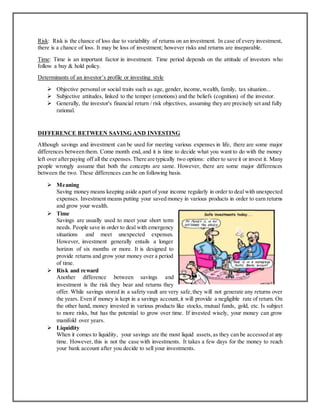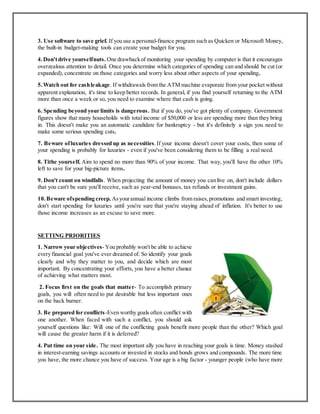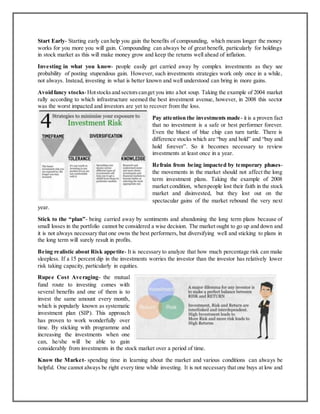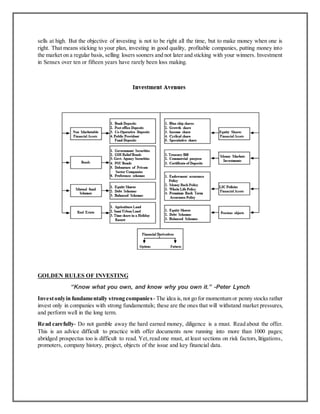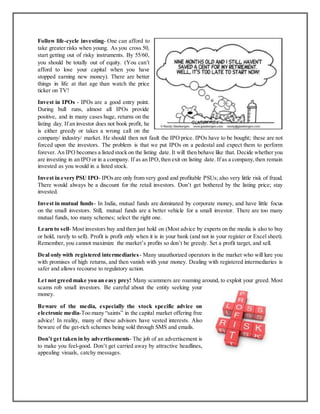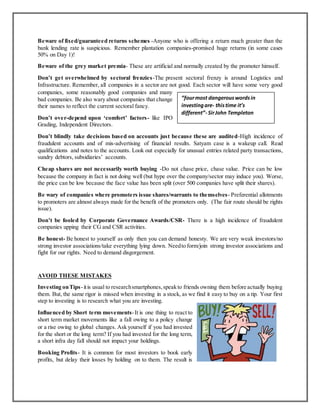Income is money received for work or through investments over a period of time. It can come from wages, profits, rents, interest or other earnings. Most individuals earn income through work or investments. In most countries, the government taxes income before individuals receive it. Savings is income not spent on consumption. It involves putting money aside in accounts or reducing expenses. Investment is the use of savings to purchase assets with the goal of earning returns such as capital appreciation, dividends or interest. The main differences between savings and investment are their purposes (preserving wealth vs. growing wealth) and risk-reward profiles (low risk-low reward for savings vs. higher risk-higher potential reward for investments). Proper financial planning involves creating budgets

